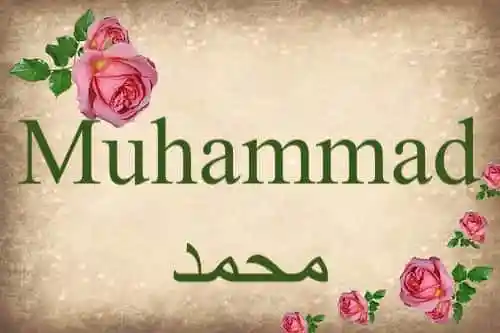
London— In a historic first, the name “Muhammad” has become the most popular baby boy name in England and Wales, overtaking traditional names like “Noah” and “Oliver.” The data, published by the Office for National Statistics (ONS), reveals significant changes in naming trends, sparking debates about cultural identity and demographic transformation in the UK.
The ONS reported that 4,661 boys were named “Muhammad” in 2023, surpassing last year’s frontrunner, “Noah.” When combined with alternative spellings like “Mohammed” and “Mohammad,” the name’s prevalence becomes even more striking, solidifying its position as a cultural phenomenon.
The Numbers Behind the Trend
The rise of “Muhammad” highlights shifting demographics in England and Wales:
- Muhammad: 4,661 boys (No. 1 in 2023).
- Noah: 4,607 boys (No. 2 in 2023).
- Oliver: 4,104 boys (No. 3 in 2023).
While the ONS treats different spellings of names as separate entities, the combined popularity of “Muhammad” and its variants significantly surpasses all other names on the list.
ONS Analysis:
The ONS attributes the rise in popularity to the increasing size of the Muslim population in England and Wales. Islam is now the fastest-growing religion in the UK, and naming traditions often reflect religious and cultural heritage.
A Right-Wing Perspective: What This Means for the UK
The growing popularity of the name “Muhammad” is emblematic of the broader demographic and cultural shifts taking place in Britain. While the data reflects the vibrancy of a diverse society, it also raises questions about the preservation of Britain’s traditional cultural identity.
Cultural Concerns
Conservative voices have expressed unease over the diminishing visibility of traditionally British names like “George,” “James,” and “William,” which have historically dominated baby name rankings.
“This trend is a wake-up call for those who value Britain’s heritage. Names are a reflection of culture, and this shift signals deeper societal changes,” said Marcus Langford, a cultural commentator.
Demographic Shifts
Census data reveals that the Muslim population in England and Wales grew by 43% between 2011 and 2021. With immigration and higher birth rates among Muslim families, such demographic changes are becoming increasingly apparent in areas like education, housing, and public services.
Public Reaction
The news has sparked mixed reactions:
- Supporters celebrate the data as a testament to Britain’s multicultural fabric, highlighting the nation’s ability to adapt and embrace diversity.
- Critics warn of the potential erosion of British traditions and values, calling for policies that prioritize integration and the promotion of British heritage.
“Multiculturalism works best when it’s balanced. The dominance of one cultural trend over others risks alienating those who feel their own traditions are being sidelined,” commented social historian Dr. Eleanor Cartwright.
Historical Context of the Name “Muhammad”

“Muhammad,” meaning “praised one,” holds deep religious significance for Muslims as the name of the Prophet of Islam. In Islamic tradition, naming a child after the Prophet is considered a way to honor his legacy.
In previous years, “Muhammad” consistently ranked in the top 10 baby boy names, but this is the first time it has taken the top spot, reflecting its growing prominence.
Biblical Perspective: The Role of Names in Cultural Identity
Names have profound significance in the Bible, often representing divine purposes or blessings. Proverbs 22:1 states, “A good name is to be chosen rather than great riches.”
The rise of “Muhammad” underscores the importance of faith and cultural heritage in naming practices. However, for those concerned about the erosion of Christian traditions in Britain, this trend serves as a reminder of the need to uphold and celebrate the nation’s Judeo-Christian foundations.
Conclusion: A Turning Point for Britain’s Cultural Identity
As Veritas World News observes:
“The ascendancy of the name ‘Muhammad’ is more than just a naming trend—it’s a reflection of Britain’s evolving identity. While diversity enriches society, the challenge lies in preserving the cultural values that have long defined the nation.”
With demographic shifts accelerating, the question remains: how can Britain balance its multicultural reality with the preservation of its historic identity? The answer may shape the country’s future for generations to come.
#Muhammad #BabyNames2023 #UKCulture #DemographicShifts #VeritasWorldNews
